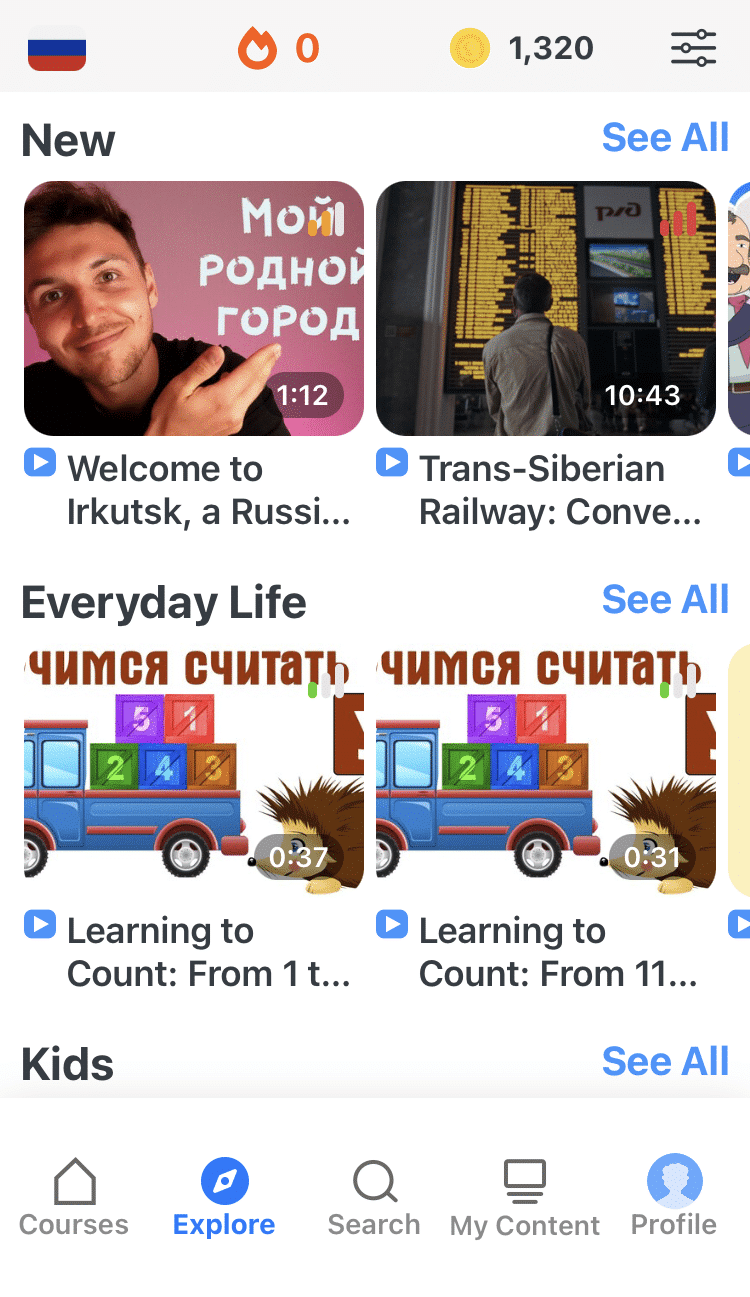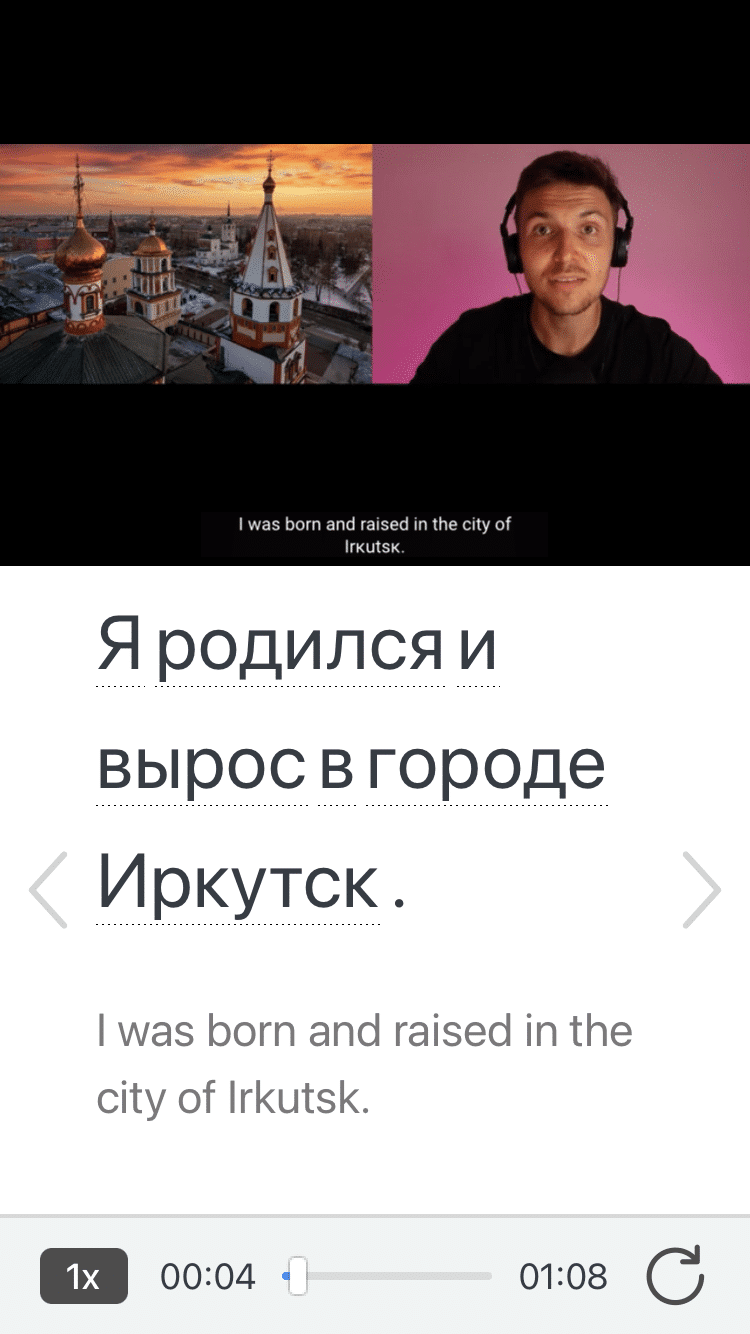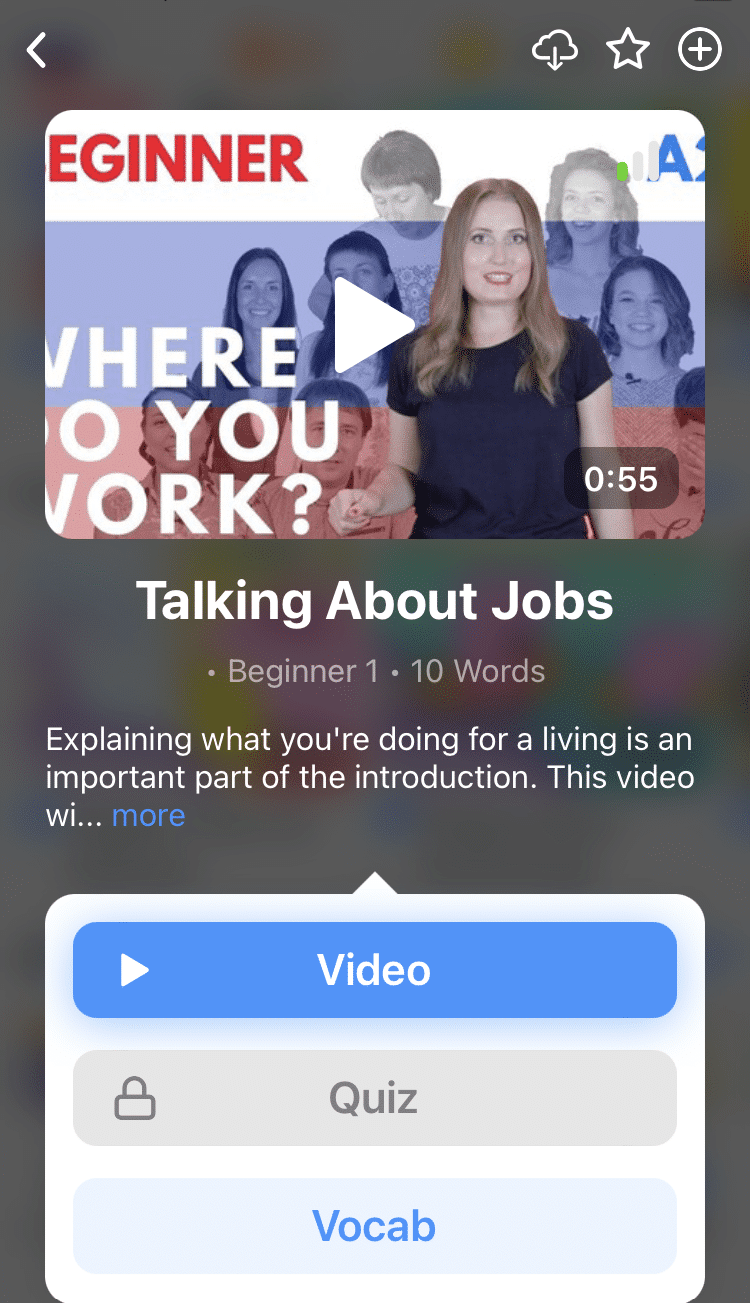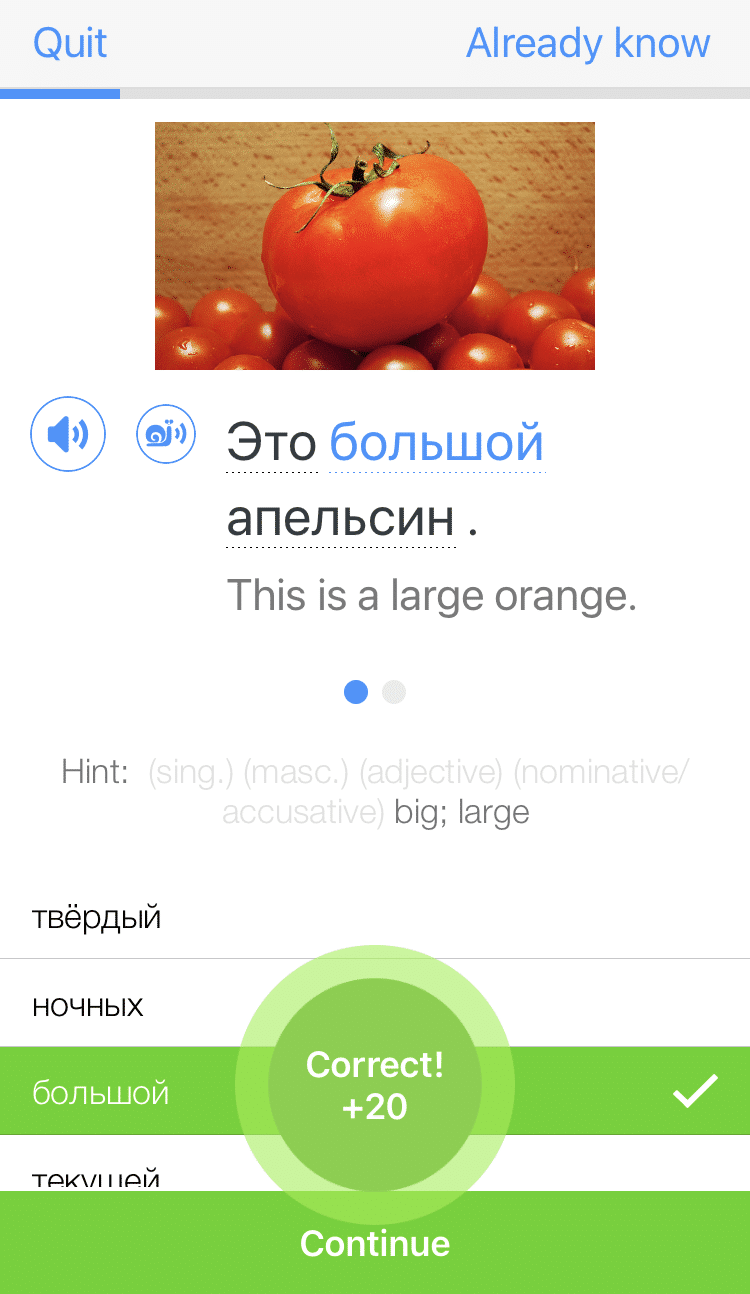
Russian Word Order and Sentence Structure
In today’s post, you’ll learn all about Russian word order. Why? Because it’s completely different from English and many other languages.
The great thing is that it actually makes learning (and speaking!) Russian a lot easier. It’s more flexible and therefore more forgiving when you’re speaking or trying to form a sentence.
But how exactly does this help you and how should you form Russian sentences? Let’s find out!
Contents
- Russian Word Order: Does It Matter?
- 3 Awesome Ways Russian Word Order Works to Your Advantage
- Exceptions Where You Need to Learn the Rules
- And One More Thing...
Download: This blog post is available as a convenient and portable PDF that you can take anywhere. Click here to get a copy. (Download)
Russian Word Order: Does It Matter?
Like many languages, the basic structure of a sentence in Russian is this:
subject (S) + verb (V) + object (O)
An example of this could be:
Я купил книгу. (I bought a book.)
However, Russian word order is much less important than in many other languages. You can reorder words while still conveying the same meaning.
How is this even possible? If you did the same in English, you’d confuse everyone. Take this example:
Julia bought a friend a book.
Without word order rules, we wouldn’t know that Julia bought the book for a friend. Look what happens here:
A friend bought Julia a book.
Same words, completely different meaning. In this sentence, Julia received the book from her friend. So this system wouldn’t work in English.
But Russian uses cases. Which means that every noun changes its ending, depending on what function it has in the sentence.
Now, Russian cases make the language more difficult in one way, but they also make things easier for you in another. Especially when you’re having conversations and just starting to learn how to speak Russian.
Here’s an example of how Russian word order can be more flexible:
- Я иду в кино. (I go to the cinema.)
- Я в кино иду. (Literally, “I to the cinema go.”)
And another one:
- Я позвоню тебе завтра. (I’ll call you tomorrow.)
- Тебе я позвоню завтра. (Literally, “You I’ll call tomorrow.”)
You can change up the order for all these words. It literally doesn’t matter if you start your sentence with я (I) the verb, or the object.
The only rule here is that “в” needs to be before “кино” (Don’t worry, these rules are not difficult to spot. More on them later).
All the other words can be freely mixed up.
3 Awesome Ways Russian Word Order Works to Your Advantage
Speaking Russian, especially at the beginning, feels intimidating. Luckily, the flexible word order makes things simpler for you. Here are three advantages this kind of word order gives you when you’re learning how to speak Russian.
#1 It’s easy to start a sentence.
It helps to remember that it’s simple to start a sentence. You don’t need to form the whole sentence before you start to pronounce it. The first word doesn’t matter. Any of the following sentences from our first example would be correct in Russian:
- Другу подарок купил вчера. (For a friend a present I bought yesterday.)
- Подарок другу вчера купил. (A present for a friend yesterday I bought.)
- Купил вчера другу подарок. (I bought yesterday for a friend a present.)
- Вчера купил подарок другу. (Yesterday I bought a present for a friend.)
If you have a general idea of what you’d like to say, then you can just start your sentence with any of the words. You don’t even need—like in English—to start with “I” or “yesterday.”
This means your conversations can sound more fluent from the start. This also makes speaking much more accessible for learners as you can just start your sentence without too much thought. All you need to know is the first word and then you can continue.
It’s a remarkably freeing feeling, especially if you’ve learned other languages before where this wasn’t the case.
If you’re coming from an English-language background, then you’ll most likely (in the beginning) try to literally translate your sentences and word order. This is fine, too, since that order is also perfectly correct in Russian!
#2 You can build sentences word by word as you speak.
This advantage comes directly from the first: Since the word order is flexible, you can add words as you’re speaking. This gives your brain extra time to think as you don’t have to map out the entire sentence beforehand.
If you spend more of your mental energy focusing on thinking of the right words to say, instead of focusing on where they should be, your words will flow better.
With English, or with any Germanic or Romance language, you need to put all the sentence building blocks in order at the start. Otherwise it sounds weird.
When speaking Russian, it helps to remember that you can build a sentence word by word as you speak. And it doesn’t matter which word order you use, as most of the time it sounds completely correct from a native point of view.
Advanced tip: Once you start to get the hang of this, you can experiment with emphasizing words by putting them at the end.
For example, you might say “Вчера купил подарок другу” (Yesterday I bought a gift for a friend) during Christmas, when you’re buying presents for the entire family, to emphasize that you bought the gift for your friend specifically (and not your mother, for example).
If you reorder the sentence to “Купил подарок другу вчера,” you emphasize that you got the present yesterday, not today or last week. Don’t worry about this kind of emphasis in the beginning, though!
#3 The barrier to speaking is automatically decreased.
Speaking a foreign language requires that you put yourself out there. You make yourself vulnerable. You might receive criticism. Or say something you think sounds foolish and have people laugh at you.
When I was 12 and in French class, the teacher asked me to say “I have a candy,” which is “J’ai un bonbon.” But we had just learned the word for “to be” the week before and I said, “Je suis un bonbon” (I am a candy). I’ll never forget how my class erupted in laughter. My French has never taken off.
With Russian word order, you have one less thing to worry about. And the fewer things that you can possibly say wrong, the lower the barrier to speaking is.
Exceptions Where You Need to Learn the Rules
When it comes to Russian word order, rules are the exception, but that doesn’t mean that those exceptional rules don’t exist.
As you noticed in the beginning of “I’m going to the cinema,” there are some situations where word order does matter. Don’t worry though, these are logical, and once you understand them, they’ll become second nature.
Remember that the more often you see these grammar aspects in use, the more comfortable you’ll be with them. That’s why, in addition to reading this post, I recommend that you use an immersion program like FluentU.
FluentU takes authentic videos—like music videos, movie trailers, news and inspiring talks—and turns them into personalized language learning lessons. You can try FluentU for free for 2 weeks. Check out the website or download the iOS app or Android app. P.S. Click here to take advantage of our current sale! (Expires at the end of this month.)
Prepositions
As you would expect, a preposition comes before the noun. You wouldn’t say “Я иду кино в” (I go the cinema to). That wouldn’t make sense. So every time you want to use a preposition, make sure to put it before the noun.
Here’s a list of the most common Russian prepositions. And here’s a shorter list of the most common 10:
- в/во (into, to, in, at)
- за (behind, beyond)
- из (from)
- к (towards)
- на (onto, to)
- о/об (about)
- от (from)
- по (along, according to)
- с (with, from, since)
- у (by)
These are the majority of the exceptions to Russian word order. The good thing is that it’s easy to remember that a preposition always comes before the noun, just like in English. So it won’t take much mental effort to order these correctly.
Multiple Cases in One Sentence
This isn’t too common, but sometimes you have multiple cases in one sentence. Usually, the cases make clear who does what.
But sometimes there are two nouns that “receive” an action. For example:
Мне нравится дарить тебе подарки. (I like giving you presents.)
In this case, there are two dative cases. When something like this happens, you should put the noun close to the verb that it’s connected to. So “мне,” or “(to) me,” should be close to “нравится” (like) and “дарить” (to give) should be next to “тебе,” or “(to) you.”
Sound complicated? Don’t worry, it’s not that common, and once you understand the Russian cases you’ll manage fine. And even in the case that the person you’re speaking with doesn’t completely understand you, they’ll just ask for clarification.
When you’re learning Russian, you hear a lot from family and friends that it’s such a difficult language. And while it’s true that for a native English speaker, it may be more difficult than German, for example, there are still many things that make Russian “easier” to learn than other languages.
The flexible word order is one of them. It makes speaking much more accessible and you automatically sound more fluent as well. You’re less likely to make mistakes and you develop an “on your feet” approach to speaking.
Many Russians will tell you it’s one of the reasons why their language is so poetic and fluid compared to others.
And after studying it for almost four years now, I wholeheartedly agree.
Download: This blog post is available as a convenient and portable PDF that you can take anywhere. Click here to get a copy. (Download)
If you love learning Russian and want to immerse yourself with authentic materials from Russia, then I should also tell you more about FluentU.
FluentU naturally and gradually eases you into learning the Russian language and culture. You'll learn real Russian as it's spoken by real Russian people!
FluentU has a very broad range of contemporary videos. Just a quick look will give you an idea of the variety of Russian-language content available on FluentU:
FluentU makes these native Russian videos approachable through interactive transcripts. Tap on any word to look it up instantly.
Access a complete interactive transcript of every video under the Dialogue tab. Easily review words and phrases with audio under Vocab.
All definitions have multiple examples, and they're written for Russian learners like you. Tap to add words you'd like to review to a vocab list.
And FluentU has a learn mode which turns every video into a language learning lesson. You can always swipe left or right to see more examples.
The best part? FluentU keeps track of your vocabulary, and gives you extra practice with difficult words. It'll even remind you when it’s time to review what you’ve learned. You'll have a 100% personalized experience.
Start using the FluentU website on your computer or tablet or, better yet, download the FluentU app from the iTunes or Google Play store. Click here to take advantage of our current sale! (Expires at the end of this month.)
And One More Thing...







